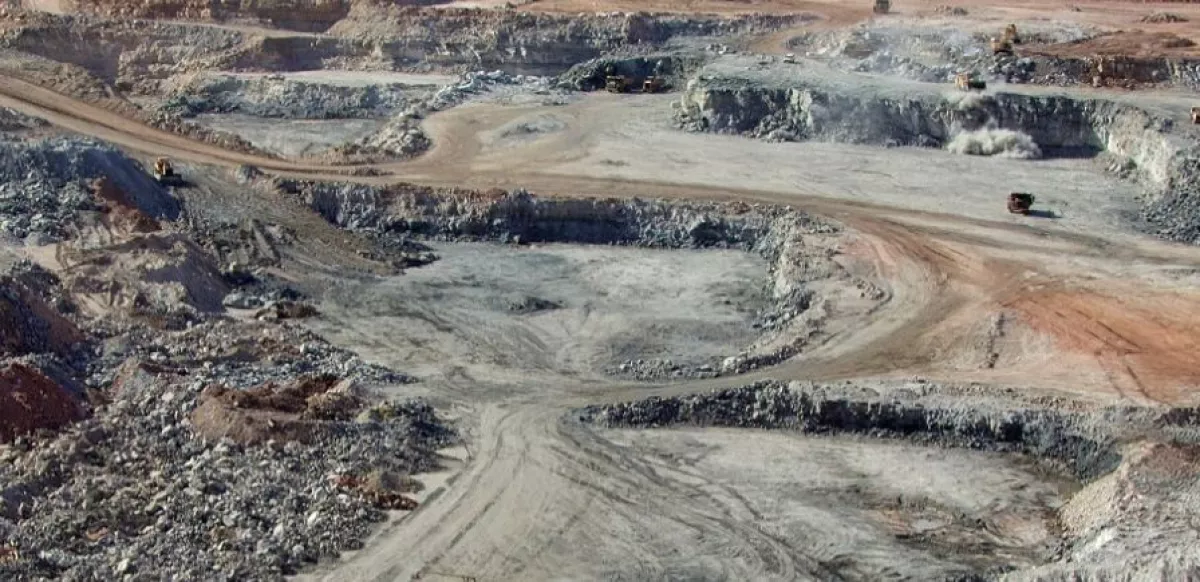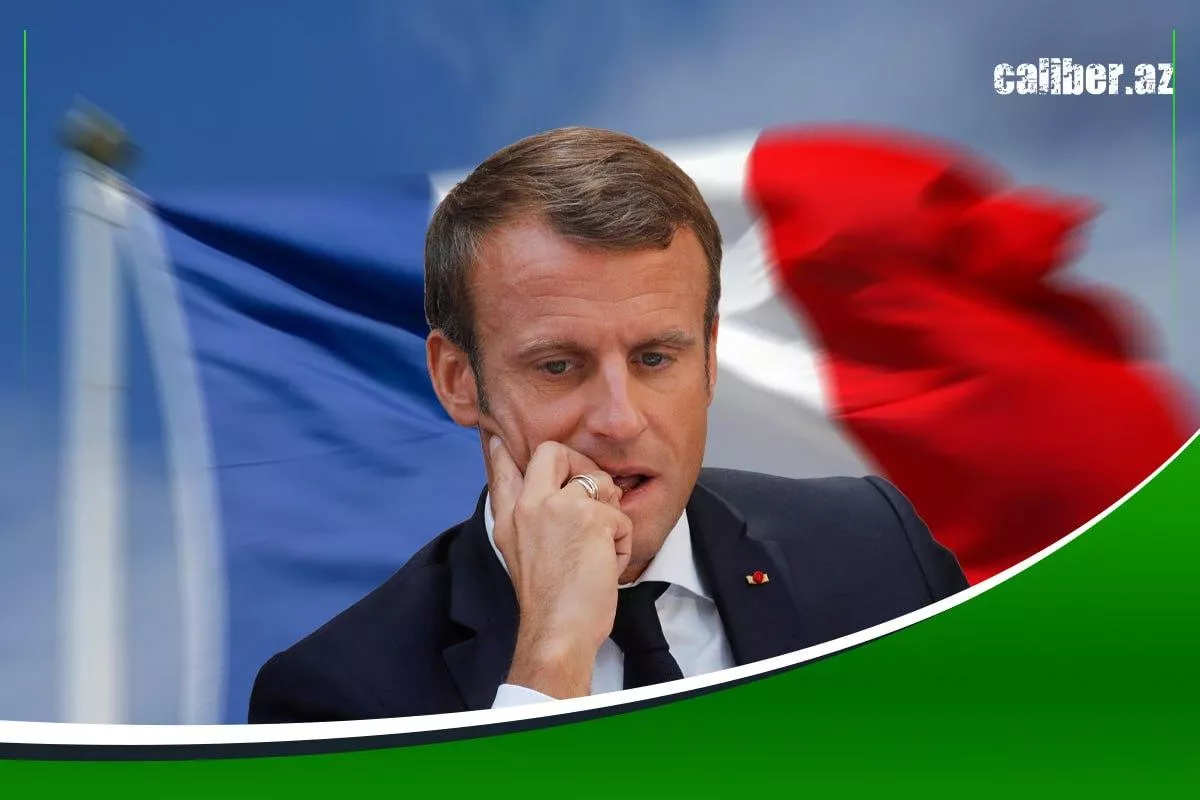Colonial shadow fades: Niger nationalises uranium, marking decline of French influence Article by THE NEW ARAB
The London-based publication The New Arab has published an in-depth article examining the erosion of France’s influence in Niger, a former colonial stronghold and key supplier of uranium that powered Paris’ nuclear ambitions for decades. The piece explores how Niger’s recent nationalisation of French uranium assets, combined with a broader regional shift away from French dominance, has not only jeopardised France’s energy security but also underscored the country’s declining stature on the international stage. Against a backdrop of mounting domestic unrest and ballooning debt, the article highlights the complex interplay between France’s internal political turbulence and its diminishing grip over the Sahel. Caliber.Az highlights the most revealing excerpts of the article.
For half a century, Niger's plains fed France's atomic dreams. The uranium pulled from the ground there lit Paris' streets, powered its factories, and gave France the illusion of energy independence.
Now, with one decree, Niger has severed the cord, and France, already mired in debt, finds itself scrambling to keep the lights on.

François Bayrou, then the French prime minister, stood before Parliament and warned that the country's ballooning debt had become "a life-threatening danger" to prosperity.
It has been accelerated by a shock delivered 4,000 kilometres away, in Niger, where in June the ruling military leadership nationalised the French uranium giant Orano's subsidiary Somaïr, dismantling a partnership that had underpinned France's energy security since the late 1960s.
France's energy lifeline is cut
For more than fifty years, Nigerien uranium quietly sustained France's nuclear ambitions. Somaïr (the Société Minière de l'Aïr) was founded in 1968, just eight years after Niger's independence, giving Paris near-exclusive access to its ore.
Two years later came the Compagnie Minière d'Akouta, which operated until 2022. Alongside Orano's predecessor, Areva, and France's atomic energy commission, the CEA, these ventures secured France's nuclear future.
"In addition to these subsidiaries, France also held the Imouraren permit, which could have produced 5,000 tonnes of uranium annually; the largest uranium mine in the world," Seidek Abba, president of the International Centre for Studies and Reflections on the Sahel (CIRES), told The New Arab.
"France was in a comfortable position in Niger, with a clear path forward. But with the withdrawal of the Imouraren permit in April and the nationalisation in June, France has lost almost all presence, all access to unique uranium."
According to the Sahel expert, the consequences are immediate. Nuclear power generates more than two-thirds of France's electricity. Its plan to revive the sector with a new generation of EPR reactors depends on secure uranium supplies.
Without Niger, Paris must scramble for imports from Kazakhstan and Canada, countries that lack Niger's long-standing reliability.
The uranium dispute is the latest chapter in a long and complicated history.
Orano - and before it, Areva - extracted vast reserves from Somaïr, Cominak (closed in 2021), and Imouraren, estimated at 200,000 tonnes.

After Niger's military leadership seized power in 2023, it accused France of plotting to destabilise the country and of 'stealing' its resources.
Eventually, Orano had been stripped of its holdings. Security forces raided company offices, seized computers and phones, and Niger turned to Russia and Iran for new partnerships.
"The loss of Nigerien uranium fits into a broader context of France being evicted from Sahel countries," added Abba in an interview with TNA.
"The army was expelled, and France has lost control over uranium. Former colonial powers now must seek a new type of relationship. The vertical model of giving orders no longer works. This is the weakening of France in the Sahel, the end of an era."
France's austerity and Macron's Sahel policies
At home, France is facing a storm of its own making. Debt levels have reached unprecedented heights, according to economists.
Bayrou's plan, which suggested €44 billion in cuts for 2026, including a pension freeze, higher healthcare costs, and the elimination of two public holidays, ignited fury both in Parliament and on the streets.
His nine-month premiership ended in defeat, dealing a blow to President Emmanuel Macron's Renaissance party as far-left and far-right legislators united to block austerity.
Earlier this month, hundreds of thousands poured into the streets of Paris, Lyon, Lille, and Marseille.
The September "Block Everything" movement drew 175,000 participants, setting highways and fuel stations ablaze, erecting barricades, and disrupting rail traffic as protesters clashed with police. The leadership, already weakened, scrambled to restore order.
This growing turbulence within France echoes its diminishing stature beyond its borders. For example, in Niger, where diplomatic ties have sharply deteriorated, Paris no longer has an ambassador.
While Paris has avoided addressing the uranium crisis in detail, experts agree that Niger's decision would affect the European country's economy. Much of the resentment abroad and at home has been blamed on Macron himself.
The Pan-African publication Africa Is a Country ran a piece under the headline, "Macron needs to shut up more," cataloguing the French leader's tone-deaf remarks that repeatedly undermined his government's efforts to build trust.
In January, Macron told French ambassadors that no Sahelian country would be sovereign today "if the French army had not deployed in the region" to fight jihadists. "I think someone forgot to say thank you.”
It was not the first time Macron, derided at home as "the president of the rich," had struck a patronising tone. His demand that the leaders of Niger, Mali, and Burkina Faso publicly express gratitude for French support only worsened already fragile ties.

Since 2020, military leadership in all three countries have seized power, expelled French troops, and cut back diplomatic ties.
Western governments have described these shifts as setbacks for democracy. Yet many West Africans, particularly the young, see them as long overdue steps towards sovereignty.
For example, Burkina Faso's Ibrahim Traoré has emerged as a pan-African icon with influence that stretches far beyond his borders.
By Aghakazim Guliyev








